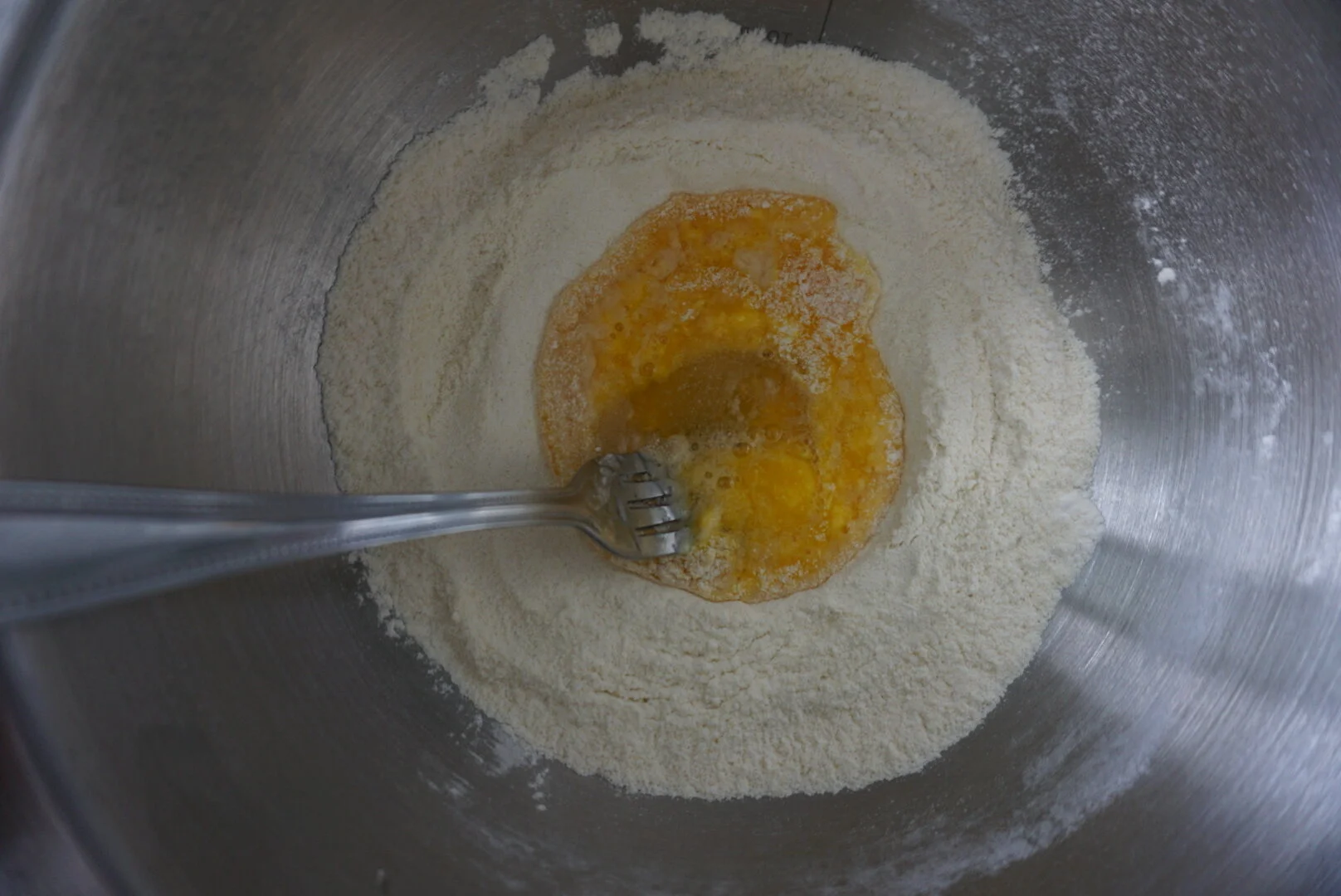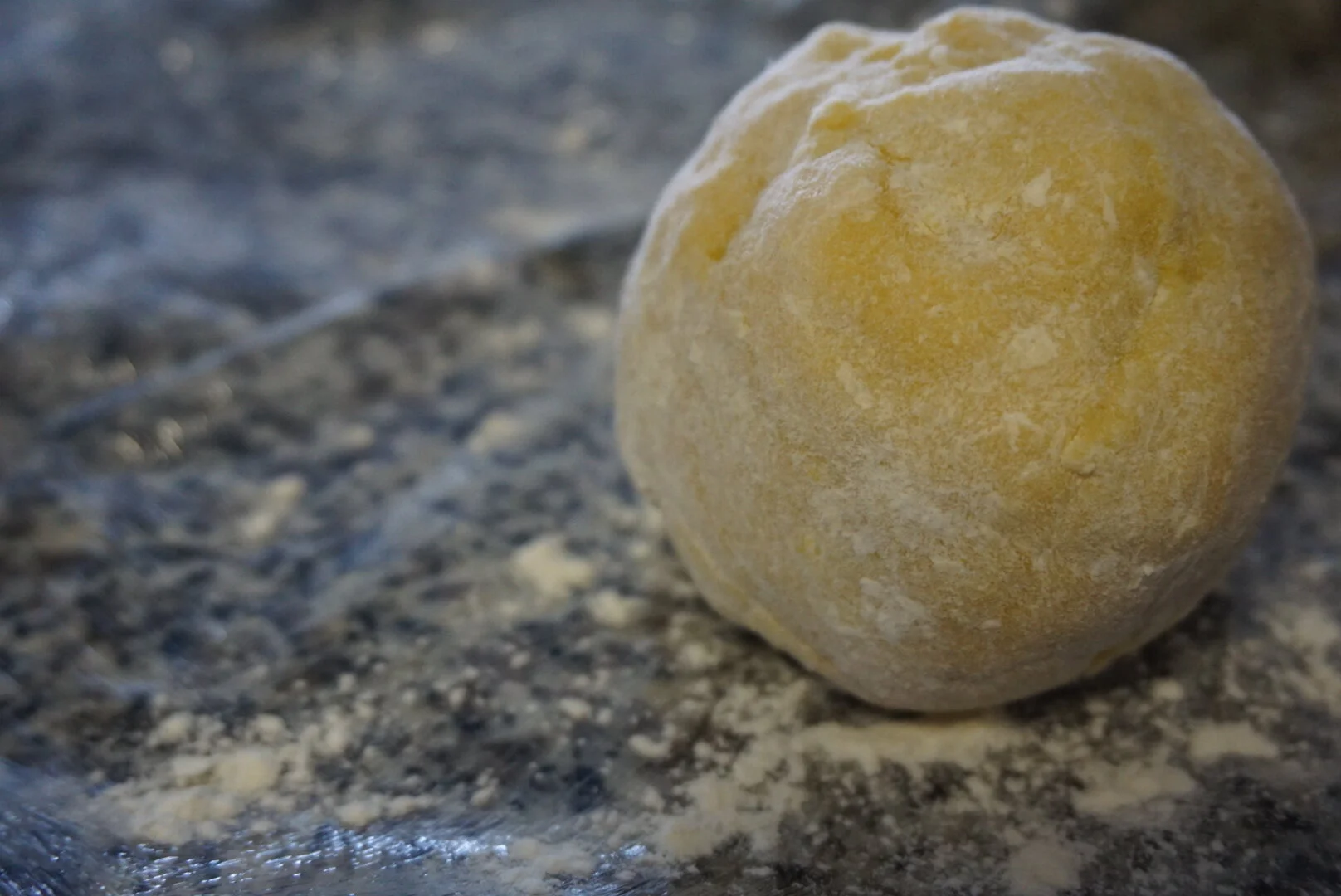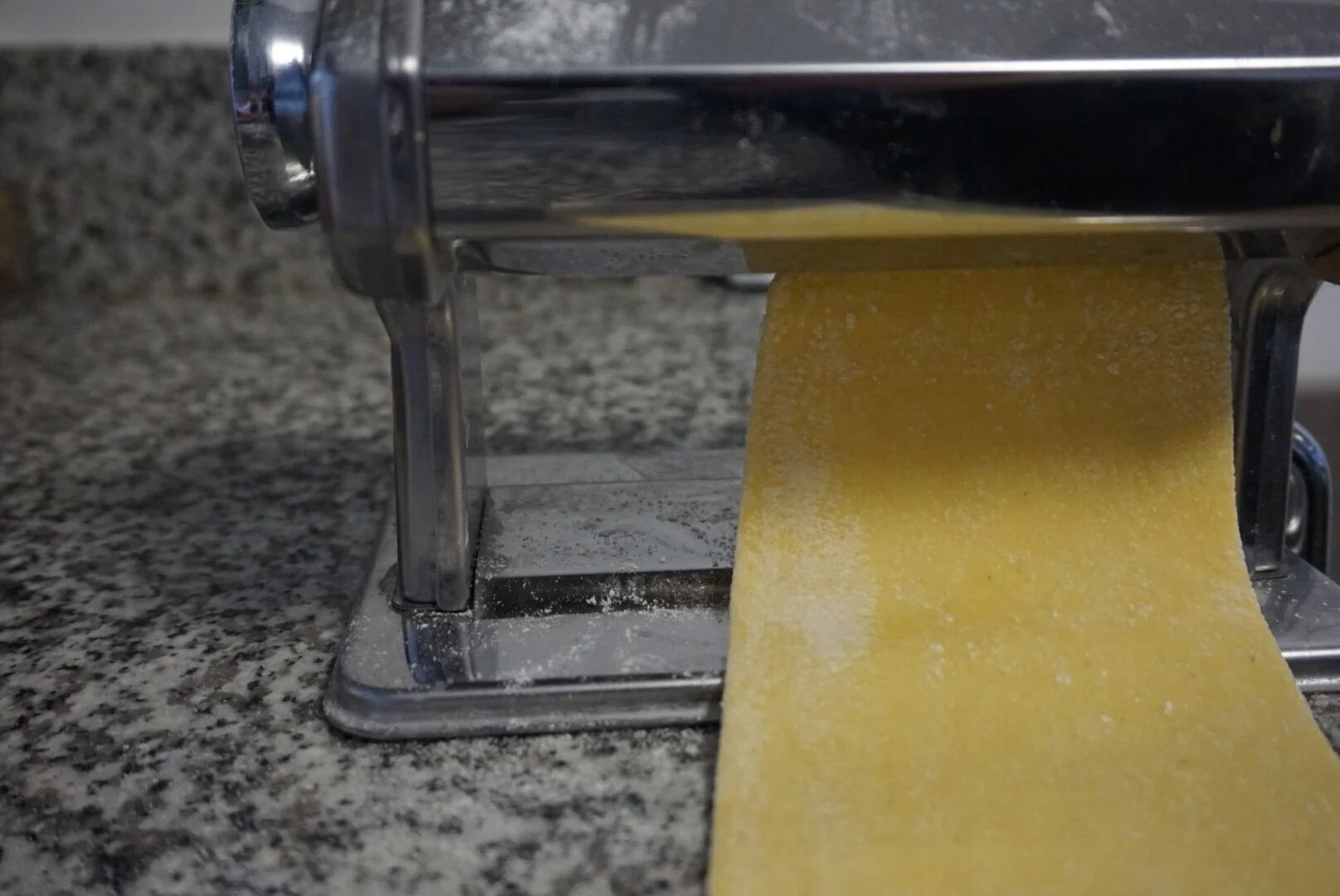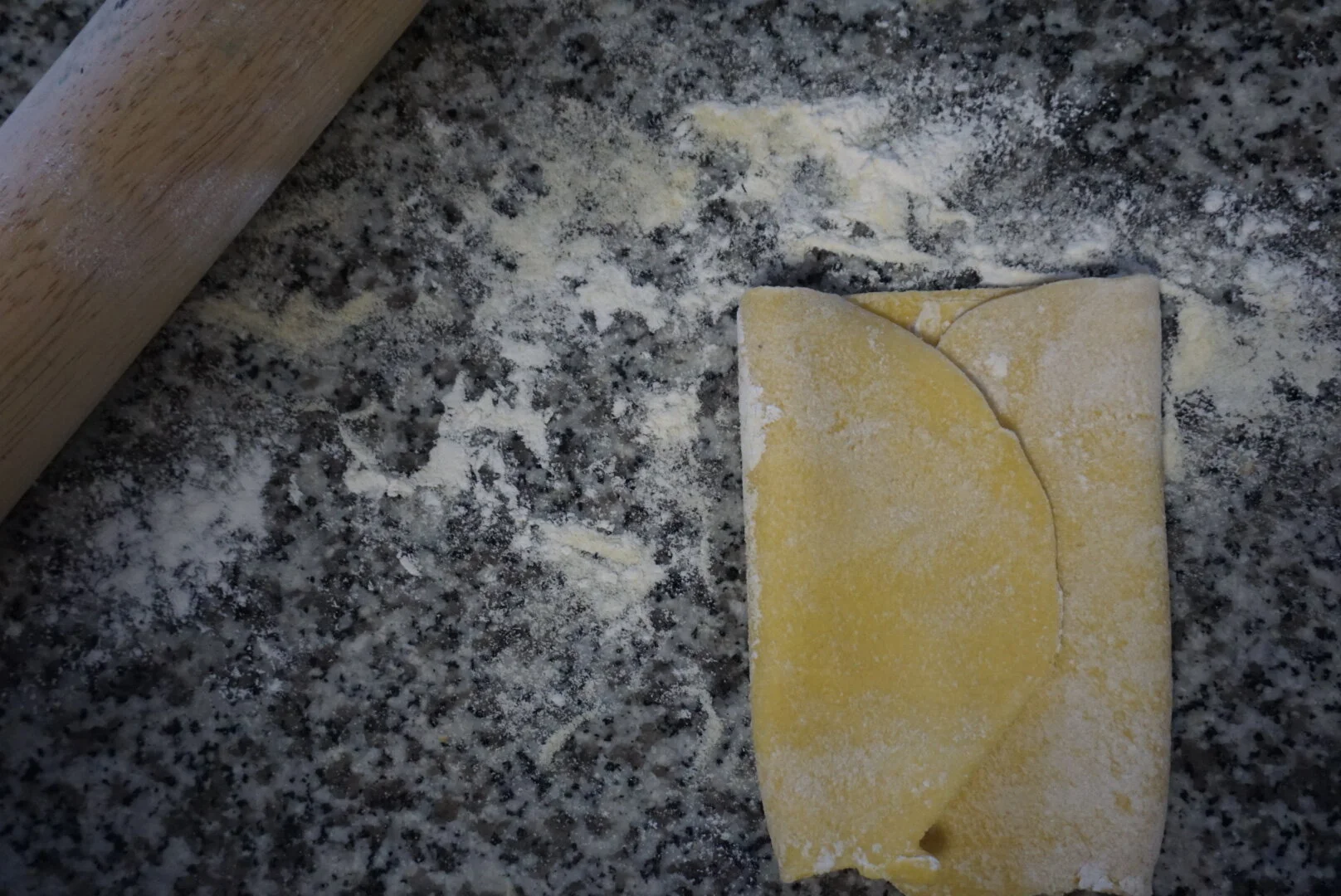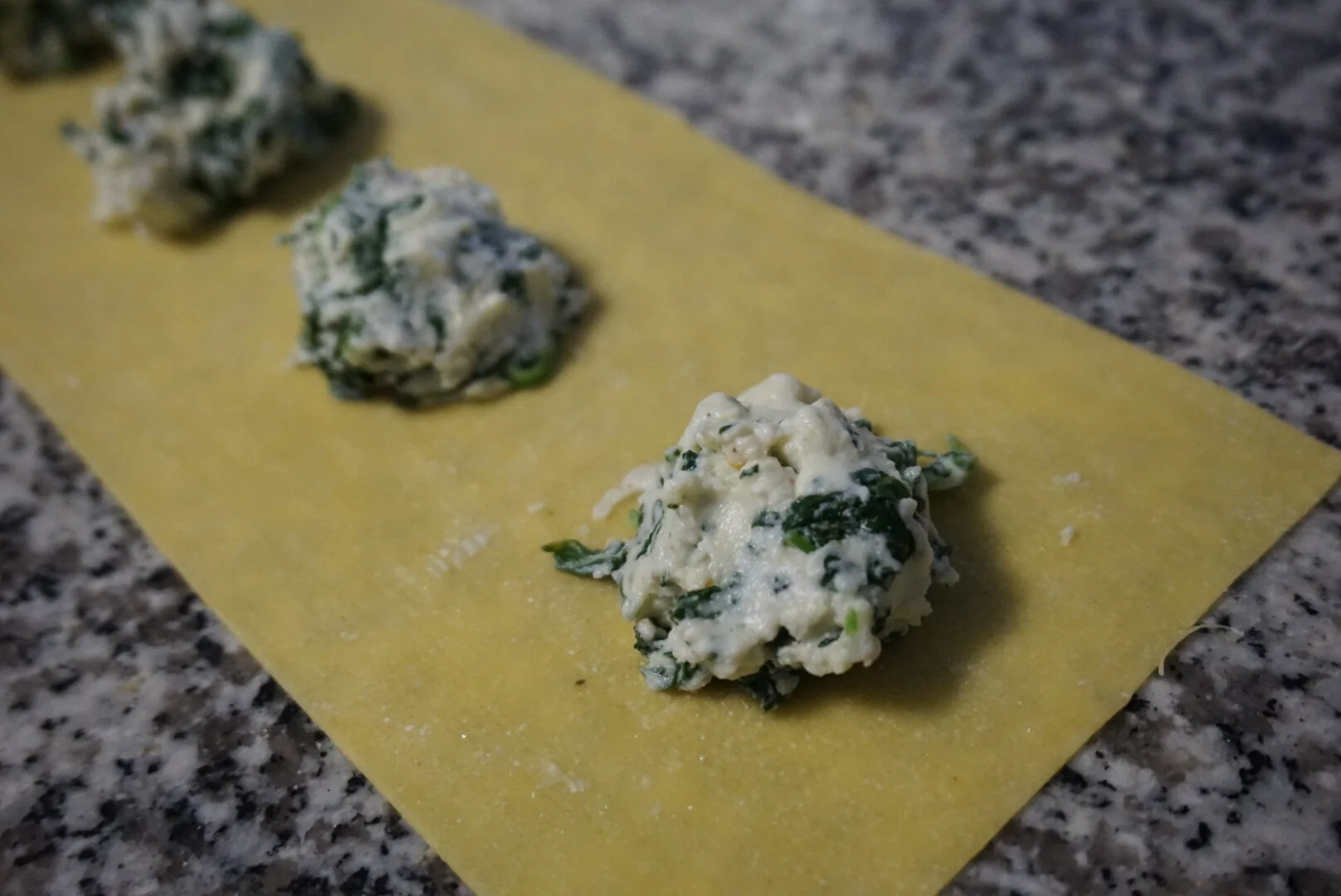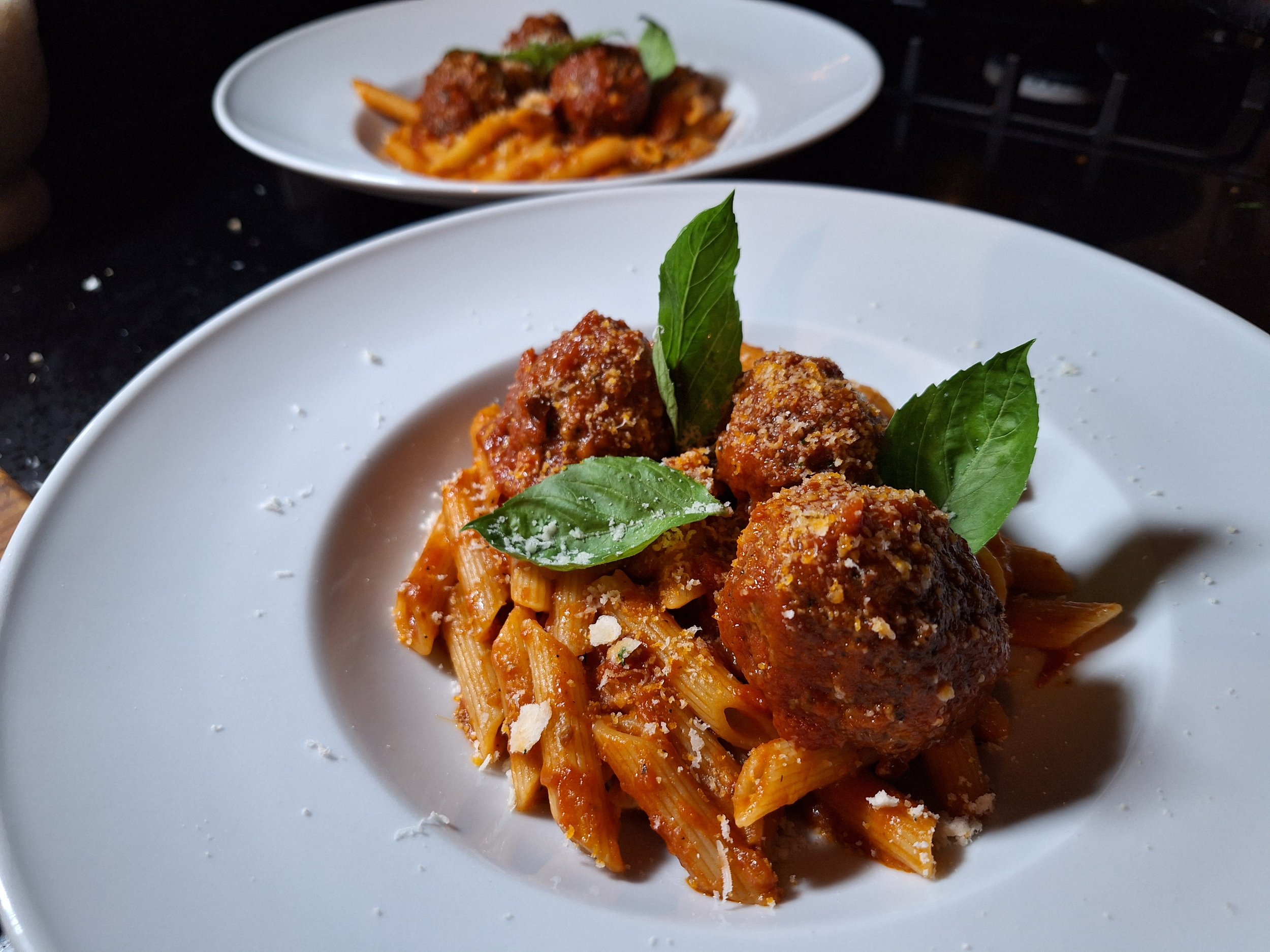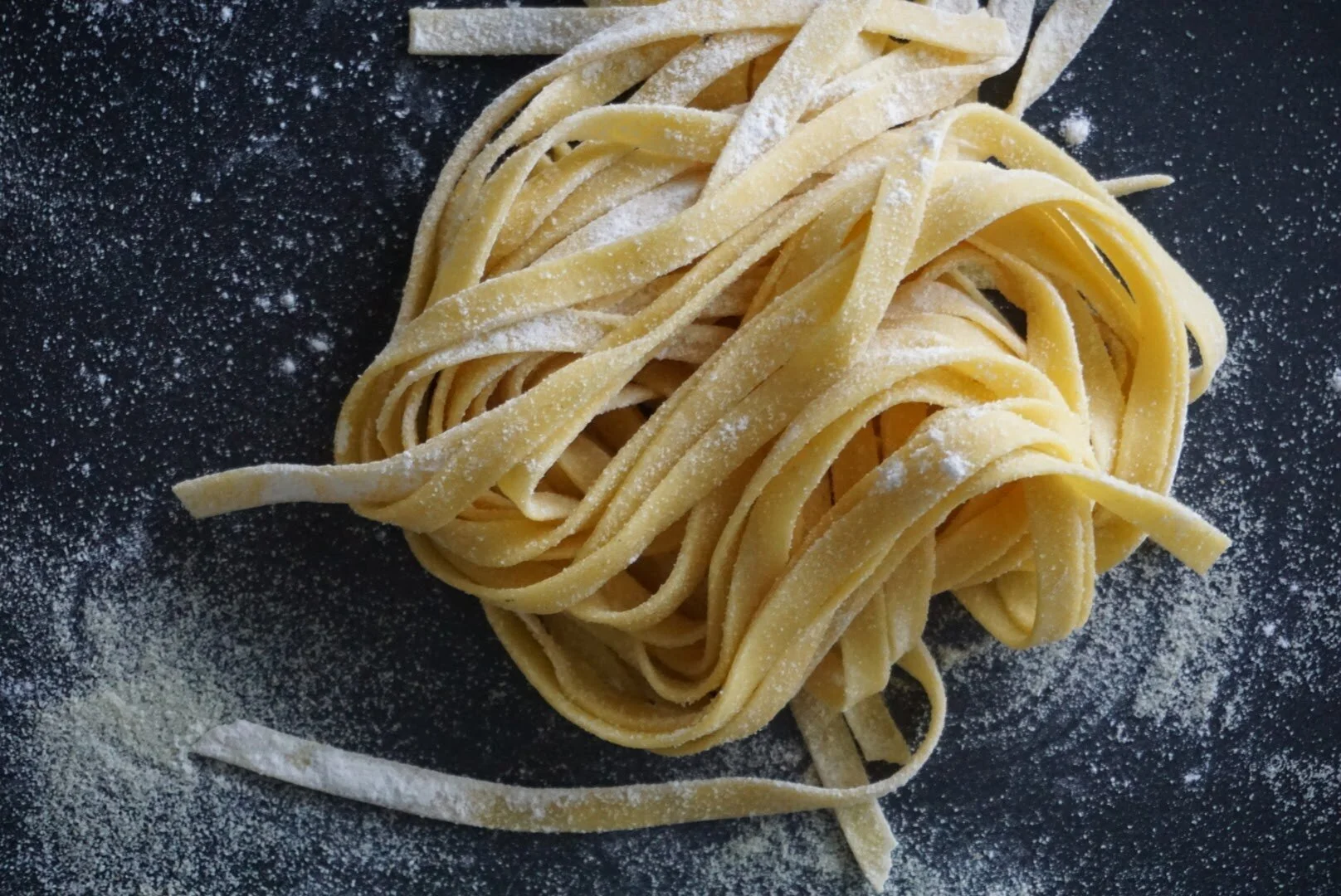Basic Pasta Dough

Roll some dough, even if you arn’t rolling in dough.
Part art, and part food, rolling out pasta is shockingly easy. The hardest part of learning is knowing when the dough is “ready”, but hey that is why you’re here, isn’t it?
Now, to pick the right flour
Preferences vary, but I like to use a 50/50 blend of semolina flour and 00 flour.
If 00 is hard to come by, any all purpose flour will work just fine.
Eggs or Egg Yolk?
It’s not the semolina that is going to give your pasta dough that iconic yellow color. It is actually the use of eggs, and more specifically their yolk.
As with any of the pasta sauces on here, adding fat during the last stage of cooking will create a silky sauce. The same goes for the yolks. You’ll want to add yolk to have a silkier noodle, but you’ll still need water and egg white to really bring the flour together.
For this dough, we use 3 yolks, and 2 eggs (5 yolks, 2 whites) for every 2 cups of flour.
As the dough is kneaded, leave 1/4c - 1/2c of water aside and incorporate slowly if the dough needs more moisture to come together.
What you’ll need
Serves 6-8
1 cup semolina flour
1 cup 00 flour
2 eggs
3 additional egg yolks
Pinch of salt
1/4 cup - 1/2 cup of water as needed
Create a well in the flour blend and add the egg and yolks
After roughly 15 minutes of kneading the dough should form a slightly elastic smooth ball
Lets Do This Part 1
In a large bowl, add both flours and stir to blend together
Create a well in the center of the dough and add the eggs and the additional yolk
Using a floured fork, stir the egg mixture and begin to incorporate the flour. Once a ball begins to form, pour onto a well floured surface and begin to knead with floured hands
Knead for roughly 15 minutes, or until the dough forms a smooth, slightly elastic ball. As you knead incorporate the water if the dough is too dry
Flour the outside of the ball and cover for 30 minutes
As you roll the dough it will get quite long and may need to be cut
Folding the dough on itself will help strengthen and prevent tears
After rolling to desired length, cover with flour to prevent sticking
Let’s Do This Part 2
When the dough is ready, cut into 4 pieces. Take 1 piece, and leave the others wrapped and aside
Using a rolling pin, flatten the dough into a rectangle and pass through a pasta machine at its widest setting
Run the dough through 3 times, before folding it like a letter seen in the middle picture above. This will help strengthen the dough as we work it further down the line
Turning the dough sideways, run it back through the machine on the same setting 2-3 times, before moving to the next lowest setting
Run through this setting 3 times, and repeat the folding process. Repeat this again for the 3rd setting, sprinkling the dough with flour as needed
At the fourth setting the dough should be strong, and you can run through the machine 2-3 times at each setting before moving down a notch
For regular noodles, you typically can stop at the 5th or 6th setting, depending on your preference. For stacked or stuffed pasta (ex. ravioli, lasagna) you’ll want to give it atleast 1 pass through the lowest 1 or 2 settings, typically #6 and #7
When the desired thickness is reached, use the cutting portion of the machine to cut the pasta in your desired shape. You can also cut by hand
Sprinkle liberally with flour and set aside to dry. Dough can be used, cooking in 60-90 seconds, or frozen for up to a week. Frozen dough will take slightly longer to cook, but no longer than 2-3 minutes
You can shape lasagna (bottom) or ravioli (left) by hand. Use the machine for uniform noodles such as the tagliatelle (right)
A thin sheet of ravioli dough can hold fillings thanks to the strength we worked into the dough

